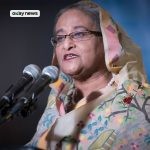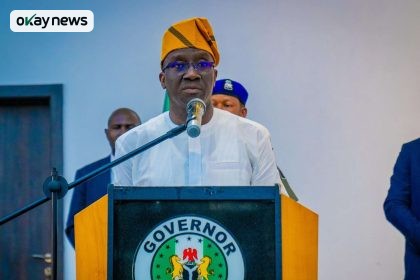Streets across Bissau, the capital city of the Republic of Guinea-Bissau in West Africa, were largely empty on Thursday as the country grappled with a sudden military takeover that disrupted the announcement of presidential election results, led to the arrest of the sitting President, and forced the closure of all national borders.
Okay News reports that tension remained high around the Presidential Palace, where soldiers maintained a heavy presence. By midday, only a few civilians dared to move along the main access roads leading to the complex, the same area where sustained gunfire erupted the previous day. Journalists reported that military patrols moved continuously across different districts throughout Wednesday night.
The political turmoil began on Wednesday when a group of senior officers declared that they had assumed “total control” of the country. Their announcement immediately suspended the electoral process that followed the nationwide vote held the previous Sunday. Prior to the disruption, incumbent President Umaro Sissoco Embalo was widely expected to secure a victory, and provisional results had been scheduled for release on Thursday.
In the early hours of Thursday afternoon, General Denis N’Canha, who heads the Presidential Military Office, briefed journalists in Bissau. He explained that a new command structure involving representatives from “all branches of the armed forces” had taken control of national governance “until further notice”.
General N’Canha claimed that security agencies uncovered a plot targeting the stability of Guinea-Bissau. According to him, the alleged scheme involved “drug lords”, and included “the introduction of weapons into the country to alter the constitutional order”.
As part of their declaration, the military leadership halted “the entire electoral process”, suspended “all media programming”, ordered the closure of “land, air, and sea” borders, and imposed a nationwide mandatory curfew. A senior military source said the leadership of the newly established “High Command for the Restoration of Order” would be announced before the end of Thursday.
Guinea-Bissau, which borders the Republic of Guinea to the southeast and the Republic of Senegal to the north, has endured repeated political instability since gaining independence from Portugal in 1974. The country has recorded four successful coups and numerous failed attempts over the last five decades.
This latest military takeover adds to the wave of coups and unconstitutional political transitions that have occurred across West Africa in recent years, including the Republic of Mali, Burkina Faso, the Republic of Niger, and the Republic of Guinea.







